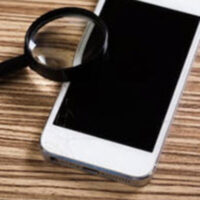Cell Phone Forensics In Police Work

Anyone who’s paid any attention to the murder trial of Alex Murdaugh is likely aware of the impact that cell phone data had on the outcome. Not only did video taken from the victim’s cell phone prove that Murdaugh was in the vicinity of the murders at the time they occurred; data also revealed the movements of Murdaugh and his victims, and the time frame in which movement occurred. It may lead some to wonder just how much police can discover and use from cell phones during the investigation of a crime.
How Phones can Aid Police Investigations
Everyone, it seems, has a cell phone these days. That means the public is able to call in crimes the second they occur if they wish. For those who are reluctant to interact directly with police, anonymous tip lines are often available for texts and/or calls. Beyond voluntary information coming to police via cell phones, there are multiple ways in which police can tap into phone data with either a person’s permission, a judge’s order, or with a subpoena to build a case against a suspect. In the Murdaugh trial, expert testimony revealed that a single device in a particular time frame could result in the generation of up to 9,000 pages of information. The types of things that cell phones might be used for in a given criminal investigation include:
- It can tie a person’s cell phone to a particular location at a specific time;
- It can trace a phone’s movements, as well as the number of steps taken;
- It can preserve data related to phone calls;
- The time that facial recognition was activated can be determined;
- The times that the phone was picked up and set down are recorded;
- Social media posts can be viewed and/or retrieved;
- Information searches can be recovered, (such as how to make a shooting look like a suicide, for example);
- It can provide investigators with contacts, frequently visited locations, etc. that could provide leads;
- Investigators can discover to whom calls occurred and the duration of those calls;
- Text messages, emails, photos can all be retrieved;
- GPS locators can help police find runaways or kidnapping victims.
Getting Their Hands on Data
In order to obtain cell phone records, investigators have to convince a judge that they have probable cause that there has been a crime, and in some cases they require an actual subpoena. The number of criminals who are convicted of crimes in part due to cell phone data increases by the day. Civil rights watchers note that there is a gray area around obtaining such data, however, noting that hundreds of monthly requests for tracking in real time made to the largest carriers of wireless plans. Are innocent people at risk of having their privacy invaded? The courts have not said a lot on that topic to date.
Your Criminal Defense
At Lobo Law, our Las Vegas criminal defense attorneys are prepared to fight for you across multiple venues, including taking a serious look at forensic cell phone data when appropriate. To discuss your situation, schedule a confidential consultation in our office today.
Source:
people.com/crime/murdaugh-family-murders-everything-to-know/
